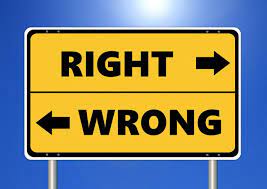What is Normative Ethics? Explain with examples.
Normative ethics is a branch of ethics that aims to establish guidelines and principles for determining what is morally right or wrong. It seeks to answer questions about how individuals and societies should behave, what actions are morally permissible or obligatory, and what actions are forbidden. In other words, normative ethics provides a framework for evaluating the morality of various actions and behaviors.

There are three main approaches within normative ethics:
- Consequentialism: Consequentialist theories focus on the outcomes or consequences of actions to determine their moral value. According to consequentialism, the right action is the one that produces the best overall consequences or maximizes the overall good. The most well-known form of consequentialism is utilitarianism, which states that the right action is the one that maximizes happiness or pleasure and minimizes suffering. An example of this is the classic “trolley problem,” where one must decide whether to divert a runaway trolley to kill one person and save five others.
- Deontology: Deontological theories, on the other hand, emphasize the inherent nature of actions rather than their outcomes. According to deontology, some actions are intrinsically right or wrong, regardless of their consequences. The most famous deontological approach is the ethical theory of Immanuel Kant, known as Kantian ethics. It posits that moral actions are those governed by categorical imperatives, universal principles that apply to all rational beings. For example, lying is considered immoral in Kantian ethics, even if the lie would lead to a positive outcome.
- Virtue Ethics: Virtue ethics focuses on the character of the individual and emphasizes the development of moral virtues. It suggests that being a morally good person involves cultivating virtues such as honesty, courage, compassion, and wisdom. Virtue ethicists argue that the right action is the one that a virtuous person would choose. For instance, in a dilemma where someone finds a lost wallet with money, a virtuous person would likely choose to return it to the owner rather than keeping the money.
Each of these normative ethical theories offers different perspectives on how to determine right and wrong actions, and they may lead to different conclusions in specific moral situations. Philosophers and ethicists often debate and analyze these theories to gain a deeper understanding of ethical principles and their implications in various contexts. It’s worth noting that many real-world ethical dilemmas do not have clear-cut answers, and different normative ethics approaches can sometimes lead to conflicting solutions.
Read